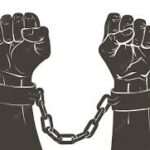Do You Want to be Made Whole?
(Resolving Narcissism and Living Free)
This article will seek to paint a picture of my understanding of a root cause (there could be many others) responsible for some personality traits or a spectrum of personality traits that could be termed narcissistic. For starters, I will first describe the key features of narcissistic behaviour:
- Apparent inability to find fault with one’s behaviour.
- A chronic sense of righteousness (sometimes wrapped in religious zeal; in other words, this individual could be very much a church person) marked by a vindictive judgment of others and a speed to find someone to blame for unpleasant experiences.
- Apparent inability to truly repent (since no wrong was done)
- Stark inability to forgive and move on (the sense of condemnation is often total).
- Tendency to create a mental narrative of issues or events to satisfy the internal sense of righteousness; this can be achieved even by distorting facts to favour a satisfactory position.
- Tendency to defend this distorted mental image with violence (physical or verbal) just to maintain an internal form of justice.
- Tendency to quickly convert hitherto close friends and family members to enemies once they fall short of supporting this internal narrative.
- Great capacity and desire to present oneself to be likeable to others, including advocating for social justice issues.
Though any of these traits could be found in all of us, I am referring to a situation where at least six of the above are found in one individual. Now, if this sounds familiar, then take a seat as this article could help you.
Understanding our Sense of Justice
We all have an innate sense of justice; every city has a prison, and the citizens of every city are mostly glad for it. Though locking up someone in a jail under poor living conditions is a terrible thing to do, we can justify it by considering the offence for which the prisoner was imprisoned; in other words, any of us would gladly do bad things like locking someone up, if we think the act was just. Yes, we know it is bad, but we also think it is just, this is also true for capital offences.
So, a delicate balance is required, and this balance though mediated by the justice system (courts) reflects the internal balance in people, in most people. This balance helps us reserve punishment only for people that deserve them and to accept punishment even when we are the offenders ourselves.
How We Handle Injustice
When we experience injustice, like a scale with two equal sides, this balance tilts to one side until judgment (justice) balances it… until this balance happens, we can justify doing bad things (throwing someone to prison); after then, the score is settled.
The challenge of this scenario is that it is often “like” for “like,” punishment must be similar in both magnitude and quality to the nature of the offence. This is why though forgiveness means not imposing punishment for an offence, it always demands a change in the behaviour of the offender. In fact, forgiveness is not deemed to have been received, until this change happens.
The Problem
There are many cases where this judgment is absent. There are things that happened to us that lack a medium for mediation, there are wounds that fail to heal simply because there is no one to take responsibility; there are people that have a chronic internal sense of injustice, this is often at a subconscious level and it is what drives their disposition (note, disposition) to the other attributes earlier listed.
Note that the trigger could be anything, someone could be unhappy about their physical features and somehow based on that sense of disadvantage grow a feeling of having been unjustly treated by life. The common denominator is a sense of “injustice” (real or perceived) and an absence of remediation.
The Development of a Narcissistic Personality
This individual, living in an unconscious state of hurt, aka a chronic innate justification to do bad things (to balance the unconscious offence), will engage with the world to make the best for themselves. Here, they will find that based on their level of appreciation of what is wrong and right try to leverage their innate justification for doing bad things to get ahead.
If they live in an environment where this tendency is unchecked, they will persevere in that mindset.
Even with a very good environment, someone with this tendency can still persevere in their mindset, however, environment acts as an early check.
An environment where love is practised, where enemies are forgiven and children are not exposed to the wickedness of this world naturally helps to heal this tendency in a lot of us, however, in many, this is not the case.
There are environments where being tough and mean would help one to get ahead, there are environments where fighting for your right and overcoming physical and mental disadvantages is the only way to survive and for these ones, the need to rise to the occasions of their early lives bolsters this early disposition and ushers them into adulthood, having succeeded to an extent by “being the way they are”.
The Knowledge of Good and Bad as the Major Check
Remember that everyone knows that putting a man in prison is a bad thing, however, our feelings towards that act depend on if we think the man deserves it. So, redemption can begin by acknowledging the goodness or badness of actions regardless of their justification. Though every society needs prisons, it is not a good society when people do not know that jailing someone is a bad thing. Hence, bad things like sending people to prison should be done only by people who know how bad it is.
That said, though we all have internal knowledge of good and bad, the “righteous” narcissist often fails to use this yardstick to judge their own action, though they can use this liberally for others. Hence, what is missing is not a knowledge of what is right or wrong but a tendency to justify one’s own actions.
Do You Want to be Made Whole?
If this describes you or someone you know, it is important to state that even though a legitimate trauma could have elicited this behavioural pattern, the narcissist’s behaviour is a choice. He or she is consciously making bad decisions and justifying them, primarily from a sense of pride. Pride in the sense that the normal rules of good and bad do not apply, a learned habit of refusing to accept what the external environment is saying – “this is bad.” Hence, the question “do you want to be made whole?” Do you want to lose that soft power that this pride gives, for it can be deemed a powerful thing to give in to the full expression of one’s indignation and anger without recourse to other considerations?
If you do want to be made whole, then half the job is done. Whole here means “normal,” “healthy” … you need to give and receive forgiveness, from God and men, even if you were a victim.
God bless you.
Nelson













